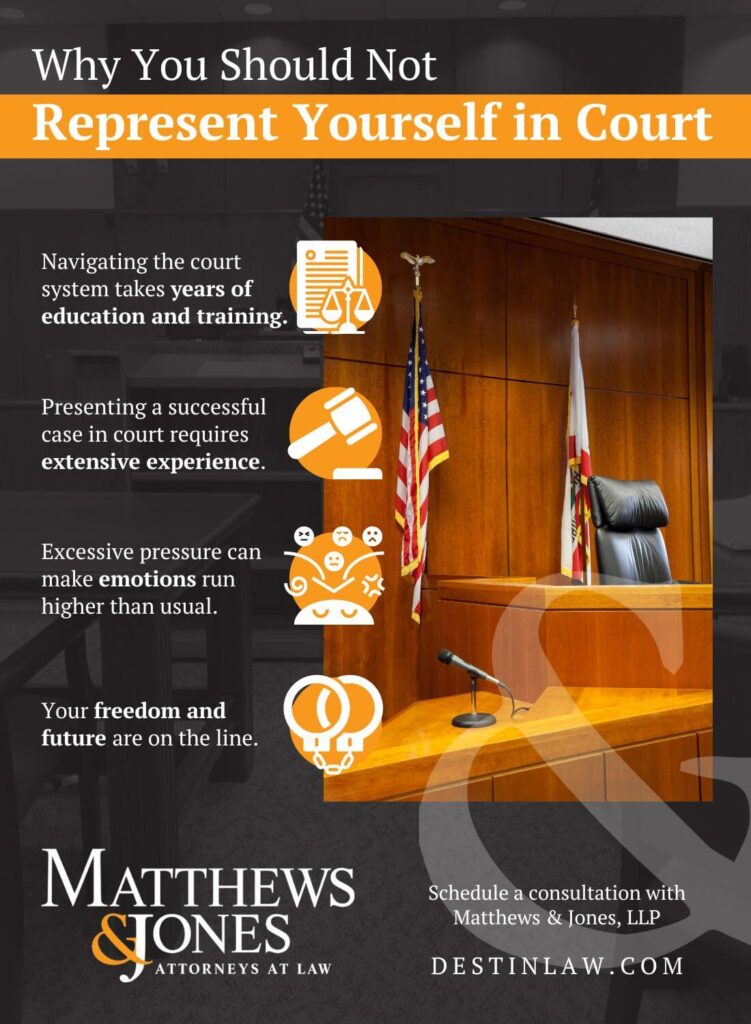The legal profession is built on the foundation of advocating for others, navigating complex legal systems, and ensuring justice prevails. But what happens when a lawyer finds themselves facing legal challenges? Can they apply their expertise to represent themselves? The answer is yes, lawyers are permitted to act as their own legal counsel, known as “pro se” representation. This means they can handle their own legal matters without hiring an attorney. While lawyers possess the knowledge and skills of the legal system, representing oneself can be complex and challenging, requiring careful consideration of the potential risks and benefits.
This article delves into the intricacies of pro se representation for lawyers, exploring the legal framework, advantages, disadvantages, and crucial considerations they must weigh before embarking on this path.
Can Lawyers Represent Themselves?
Yes, lawyers are legally allowed to represent themselves in court proceedings. This right is enshrined in the Sixth Amendment of the U.S. Constitution, which guarantees the right to self-representation, also known as “pro se” representation. This means a lawyer can choose to forgo hiring another attorney and handle their own legal case, from filing initial documents to presenting arguments before a judge or jury.
However, it’s important to note that while lawyers have the right to represent themselves, courts may still require them to demonstrate competency in handling their case effectively. This might involve reviewing court filings or conducting a brief hearing to assess the lawyer’s understanding of the legal issues involved. Ultimately, the decision rests with the judge presiding over the case.
Pro Se Representation Explained

Pro se representation refers to individuals representing themselves in legal matters without the assistance of an attorney. While this concept applies to all citizens, it is particularly relevant for lawyers who possess a deep understanding of legal procedures and terminology. When a lawyer chooses pro se representation, they assume full responsibility for every aspect of their case, including:
- Legal Research: Conducting thorough research on applicable laws, precedents, and statutes relevant to their situation.
- Document Preparation: Drafting and filing all necessary legal documents, such as complaints, motions, briefs, and appeals.
- Court Appearances: Representing themselves in court hearings, presenting arguments, examining witnesses, and responding to opposing counsel.
Benefits and Risks of Self-Representation
Like any legal strategy, representing oneself carries both potential benefits and inherent risks.
Potential Benefits:
- Cost Savings: Hiring an attorney can be expensive, so representing oneself eliminates those fees.
- Control Over Case: Lawyers acting pro se have complete control over their case strategy, arguments, and presentation.
- Personal Connection: Some lawyers may feel more comfortable and confident handling their own legal matters personally.
Potential Risks:
- Complexity of Legal System: Even with legal knowledge, navigating the intricacies of court procedures and rules can be challenging.
- Emotional Bias: Lawyers involved in personal legal issues may struggle to remain objective and make sound legal decisions.
- Limited Resources: Pro se lawyers lack access to the resources and support systems available to attorneys with firms or colleagues.
Legal Knowledge and Skills

While lawyers possess a fundamental understanding of the legal system, representing themselves requires a unique set of skills and knowledge.
Essential Skills:
- Legal Research Proficiency: Lawyers must be adept at researching relevant laws, precedents, and statutes to build a strong case.
- Writing and Communication: Clear and concise legal writing is crucial for drafting effective documents and presenting arguments persuasively.
- Courtroom Etiquette and Procedure: Understanding courtroom rules, procedures, and decorum is essential for navigating hearings and trials effectively.
Knowledge Gaps:
- Specific Practice Areas: Lawyers may lack expertise in the specific area of law relevant to their case, requiring extensive self-study or consultation with experts.
- Local Rules and Procedures: Each jurisdiction has its own unique rules and procedures, which lawyers must familiarize themselves with thoroughly.
Considerations for Lawyers Acting as Counsel
Before embarking on pro se representation, lawyers should carefully consider the following factors:
- Complexity of the Case: Simple matters may be manageable pro se, but complex cases involving intricate legal issues or high stakes often require professional legal counsel.
- Emotional Involvement: If the case is emotionally charged or personally significant, it may be difficult for a lawyer to remain objective and make sound legal decisions.
- Time Commitment: Representing oneself requires significant time and effort for research, document preparation, and court appearances.
Seeking Guidance: Even if a lawyer chooses pro se representation, they can still seek guidance from experienced attorneys on specific legal issues or procedural matters.
Conclusion
The decision of whether to represent oneself in court is a complex one, even for lawyers. While possessing legal knowledge and skills provides a foundation, the intricacies of the legal system, potential risks, and emotional complexities require careful consideration. Lawyers contemplating pro se representation should thoroughly assess their case, resources, and personal circumstances before making this significant decision. Ultimately, the goal is to ensure that justice prevails while protecting the rights and interests of all parties involved.



